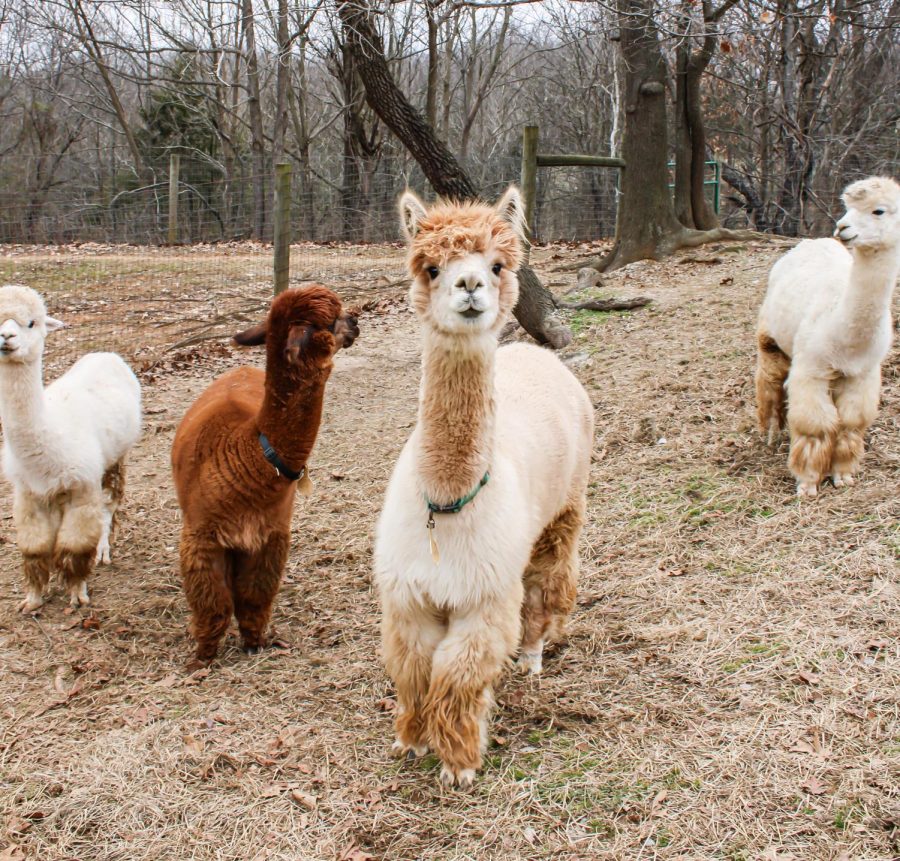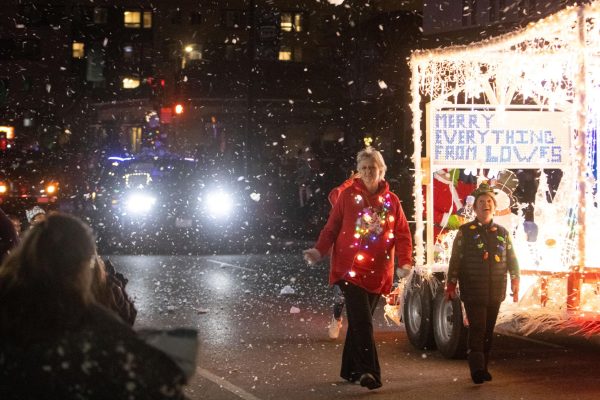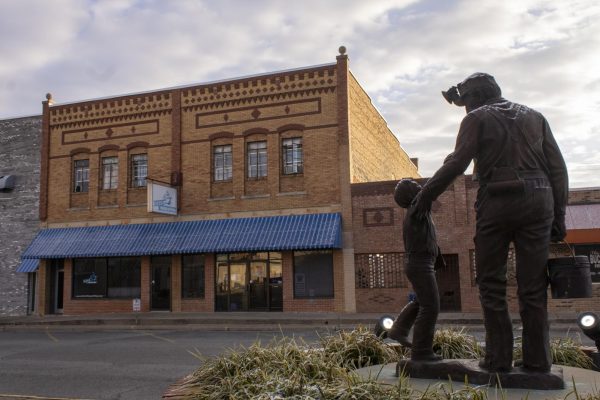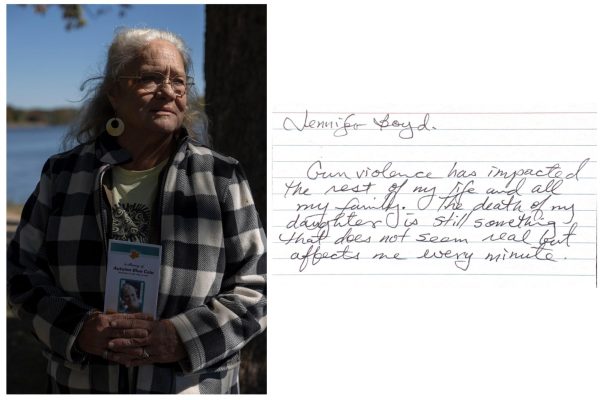A girl’s love for crocheting develops into a farm of more than thirty alpacas
Sophia Rogers | [email protected]
A group of alpacas approach the camera to get their picture taken Jan. 27, 2022 at Rolling Oak Alpaca Farm in Makanda, Ill.
Opening nearly a decade ago, Morgan Stevenson and her mother, Judy Hoepker, have grown the Rolling Oaks Alpaca Ranch in Makanda, Ill. from a herd of three alpacas into a farm of more than thirty alpacas, attracting thousands of people to visit the animals and purchase the many different handmade items made from their alpaca fleece.
“The alpaca farm started in 2011 because I learned to crochet two years before and I wanted softer yarn,” Stevenson said. “So, I started with three alpacas and I asked mom if I could put them here on her property.”
Hoepker agreed to house the animals, but a new problem began to arise: caring for alpacas was very different from typical Southern Illinois livestock.
Advertisement
“We had goats, we had horses, cows, and a donkey, but [alpaca] needs are so different from any other livestock […] We did a lot of research through seminars we went to and a lot of books. We tried to get all the education we could, learning how to care for the animals properly because they are not native to North America,” Stevenson said.
Because the temperatures are so cold, Hoepker and Stevenson keep their older alpacas inside, so every morning they go down to the stalls and let them into the pastures for the day before feeding and watering the alpacas. During the winter months, they keep the alpacas close to the house, but in the summer they will open up different pastures for the herds to explore and roam in.
Once the alpacas are in the pastures, Hoepker and Stevenson spend the day fixing fences, hanging gates and rotating the animals into different pastures. In the evenings, they bring in the animals for supper as well as their daily ration of grain. Along with the daily care for the alpacas, the animals also receive a monthly vet check to ensure the herd is happy and healthy.
“This is everything to us. We are a fiber farm as well as raising the animals […] All the animals were bought because we wanted the materials we could get from them. We’re fiber artists and we use every bit of fleece that they give us to make products,” Hoepker said. “When we’re not [on the farm], we are making products year round.”
In addition to the the products in the store, such as leggings, rugs and scarves, Rolling Oak Alpaca Ranch offers private tours, photo shoots with the alpacas and seasonal events like the Valentine’s Day event taking place on Feb. 12, 2022.
“Getting to know the alpacas and their personalities, working with their fiber to make stuff, opening it up to people to come and enjoy the alpacas, and the travel that has opened up for us, going to shows, working for other farms, meeting other people who are raising alpacas too, that’s all a lot of fun,” Stevenson said.
When Covid-19 began to shut down the country, the farm felt the impact of the pandemic as well. Hoepker and Stevenson had to close the farm to the public for the first half of 2020; however, their farm did not suffer from the lockdown for long.
Advertisement*
“We actually saw a rise in business and private tours because we are an outdoor business […] People had nothing else to do when covid first hit, so our business really took off because people could be outside and doing something,” Hoepker said.
Looking toward the future, Rolling Oak Alpaca Ranch is working to expand both the product and service aspects of their business.
“We have a lot of products we are playing with right now that we need to perfect. We have event goals, new events and new ways to structure events. We have a classroom being built and we have herd goals for specific females and a specific male. We are trying to improve our herd and the breed itself through how and who we’re breeding,” Hoepker said.
Though the classroom isn’t open yet to the public, Hoepker and Stevenson currently offer beginner sessions on weaving, spinning and crocheting, ranging from preparing raw alpaca fiber to crocheting a scarf.
“Our biggest current challenge right now is growth and we make a lot of our own products. Finding time for us to do all the handmades and focus on the things we have planned for our goals for growth and product research for things we want to do, that’s why there’s not enough hours in the day,” Hoepker said.
Along with the expansion projects, the alpaca farm remains dedicated to community involvement, holding frequent events to welcome the local area to visit the animals and learn from them, too.
“[One of our favorite memories is] our first Christmas event. It was tiny, we had not even seventy people come, and it was exciting for us, but now we have a thousand come through in two weekends,” Hoepker said.
Advertisement









